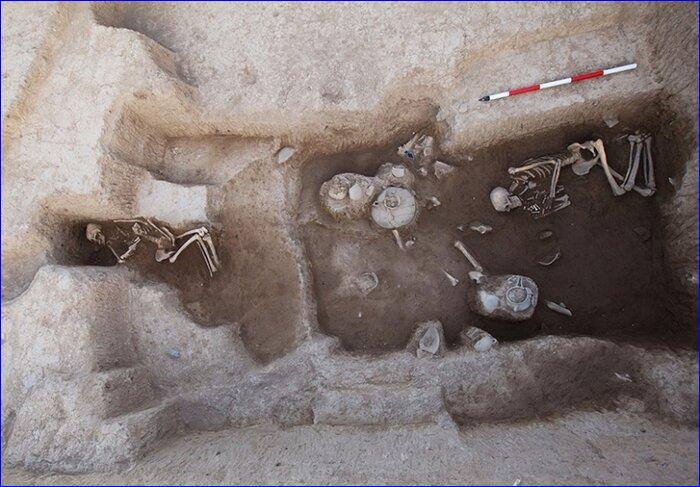


The discovery was made in a prehistorical cemetery at Tepe Sagzabad, a site situated on the Qazvin plain of north-central Iran, which has been excavated during various archaeological seasons since early 1070s, yielded artifacts and other remains dating to the Early Iron Age.
Related: Brief History of Assyrians
Related: Assyrians: Frequently Asked Questions
Diggings at a newly discovered Iron-Age cemetery, in the area, led to the discovery of 35 cylinder seals that are believed to belong to local and state Assyrian administrations, said Mostafa Dehpahlavan who led the excavation project, IRNA reported on Sunday.
Based on research on the spheres of physical anthropology, genetic, ancient zoology, and rare burial traditions, we obtained an ample evidence that suggests cultural, political and economic interactions of the inhabitants with remote areas of the western edge of the Iranian plateau, the archaeologist explained.
"In all graves, with no exception, remains of animals such as goats, immature sheep, cows, camels and horses were found, which points to burial of animals alongside the human corpse."
Other objects were also found in the graves, such as cylinder seals, metal ornaments, earthenware and stone containers that date from the Iron Age, Dehpahlavan added.
Assyria, according to Encyclopedia Britannica, was a dependency of Babylonia and later of the Mitanni kingdom during most of the 2nd millennium BC. It emerged as an independent state in the 14th century BC, and in the subsequent period it became a major power in Mesopotamia, Armenia, and sometimes in northern Syria.
The state was finally destroyed by a Chaldean-Median coalition in 612--609 BC. Famous for their cruelty and fighting prowess, the Assyrians were also monumental builders, as shown by archaeological sites at Nineveh, Ashur, and Nimrud.

or register to post a comment.